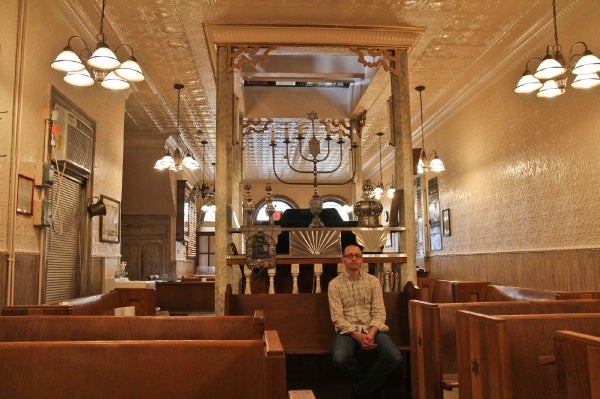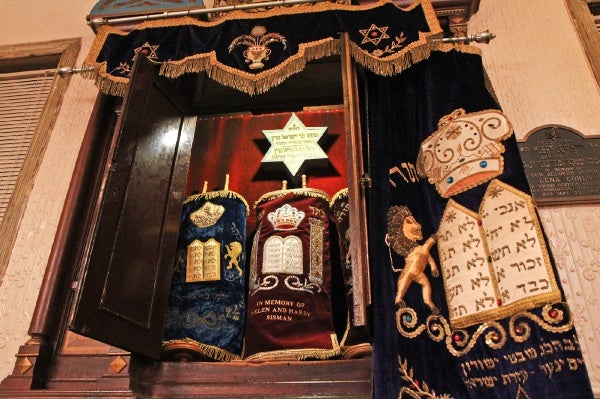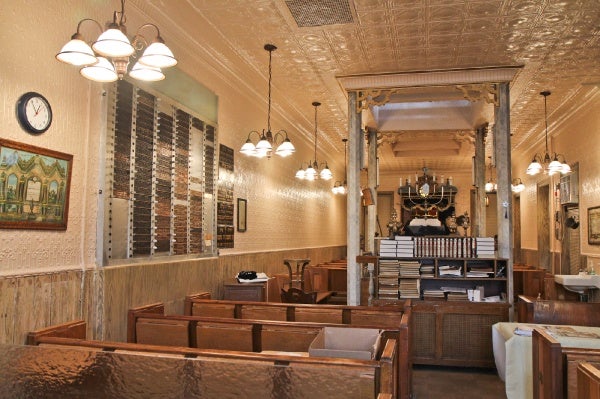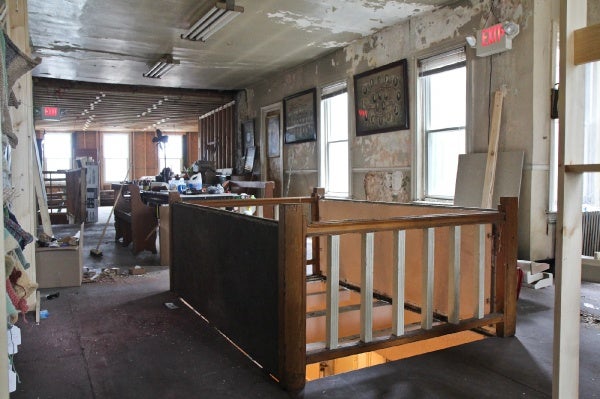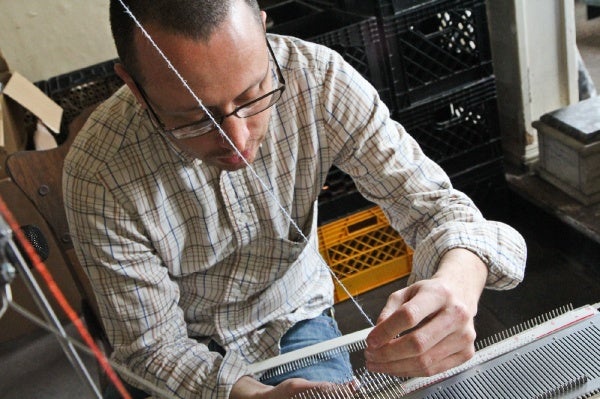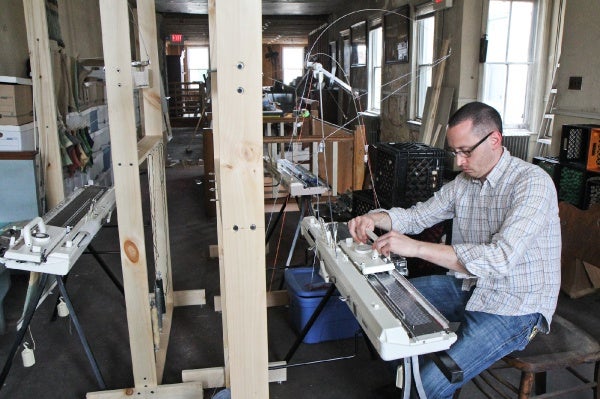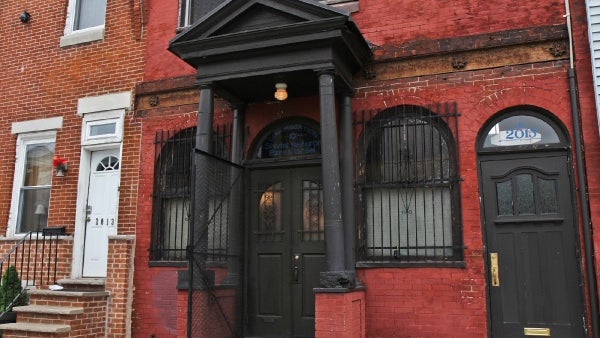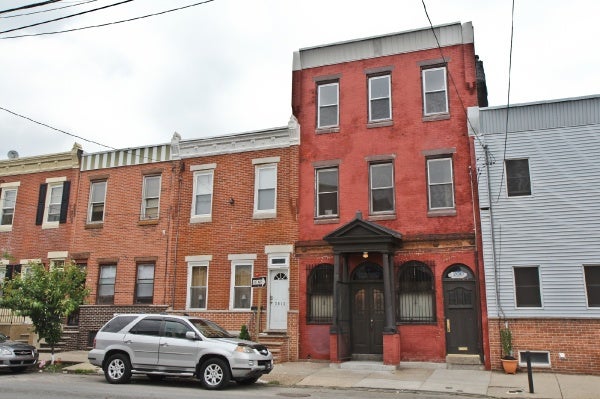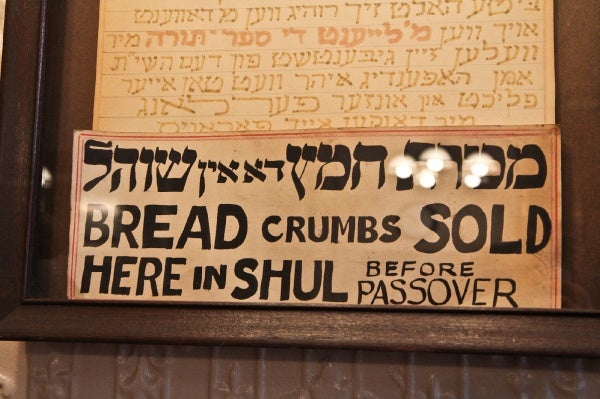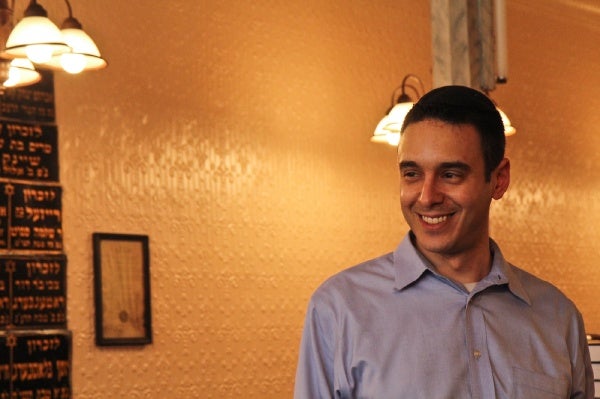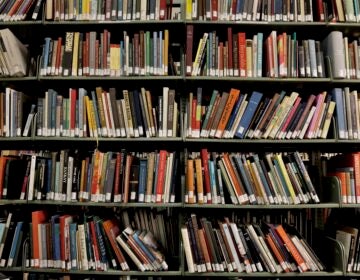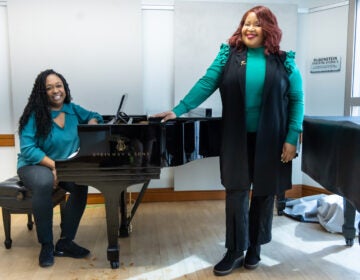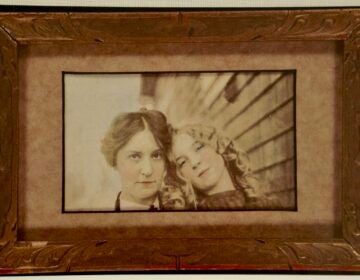South Philly rowhouse synagogue uses festival to become community hub
If you’ve ever wondered what’s the story behind an old building, you are in for a treat. One of the nine sites selected by The Hidden City Festival is a South Philly synagogue that has been active for the past 100 years. The idea behind this year’s festival is to ask artists and communities to plan for the future of each site beyond the events.
In the labyrinth of South Philadelphia’s immigrant history, the small synagogue is situated between two row homes. In its unassuming modesty, the building stands as a witness to the rich Jewish presence in the early 20th century, when more than 100 synagogues populated the streets east of Broad and south of South.
Shivtei Yeshuron-Ezras Israel, was born as a storefront synagogue in 1909, and it’s still active, kept alive by a small congregation of people from the city and suburbia.
Morris Levin, a young entrepreneur and member of the synagogue’s board of directors is the main force behind the Hidden City project here.
“This is a treasure, a very special place,” he said. “And the only way to preserve it is to use it.”
The place is indeed remarkable, designed to make every inch inviting and soulful. A smaller version of a traditional synagogue, the sanctuary has the Holy Ark draped in rich velvet, housing old Torah scrolls from shuttered area synagogues.
The synagogue is affectionately called the “Little Shul,” says Levin.
“It’s really one of the first pre-World War I rowhouse synagogues in South Philly, and it has the same structure as a hundred years ago. So there’s a nice mix of people who are trying to figure out what does a row house synagogue look like in 2013 and in the future,” said Levin.
A family that knits together…
To make the place relevant and vibrant, he joined forces with textile designer Andrew Dahlgren, founder of ADMK Knit Lab, and together they concocted an idea. By transforming the second floor into a knitting workshop, they would connect the city’s industrial and immigrant past with a cutting-edge community engagement art project.
Dahlgren installed three portable knitting machines and supplied plenty of yarn.
He can load the machine with an expert hand and start knitting without missing a beat — or a thread — as he talks.
“We came up with this idea of making fabric on site that would be assembled and installed in the front of the building. So we have to make fabric to cover three stories facade of 20 or so feet wide, and see what happens.
Site visitors will be invited to come and knit swatches of fabric that will eventually be sown into a giant quilt for the triumphant finale sometime in the middle of June. It’s a participatory project.
From this homegrown workshop, the space will be eventually transformed into a permanent meeting place where city folk, neighbors and visitors will gather to watch films, attend lectures, and listen to music. In this festival the film is called “Punk Jews,” and the music is several live performances of composer John Zorn’s “The Book of Angels” by the group Abraxas and solo cellist Erik Friedlander. It’s part of Zorn’s Masada Project, labeled as modern, somewhat radical Jewish music.
A stake in Philly’s future
As with most of the Hidden City Festival’s projects, the ideas were generated by a group of young designers, artists, professionals and business people who have decided to make Philadelphia their home and it’s prosperity and sustainability their personal and collective mission. For Dahlgren it’s about revitalizing Philadelphia’s textile industry ; for Levin it’s a project about exploring Jewish identity.
“I’m excited by a Jewish world which enables these different ways of connecting, different ways of expression,” said Levin. “For some people it’s a religious, spiritual path. For others it’s art, music. We live in a heterogeneous multicultural world, so how do you fit all these pieces together? That’s the real challenge, and it’s very exciting.”
For the next month, the Little Shul on 4th Street will become a community center for the whole city, where small industry, music, conversation and worship will come together under the festival’s banner, only to continue into the future, no longer hidden.
—
The Festival continues until the end of June and you can find information on events and schedules at festival.hiddencityphila.org.
WHYY is your source for fact-based, in-depth journalism and information. As a nonprofit organization, we rely on financial support from readers like you. Please give today.


